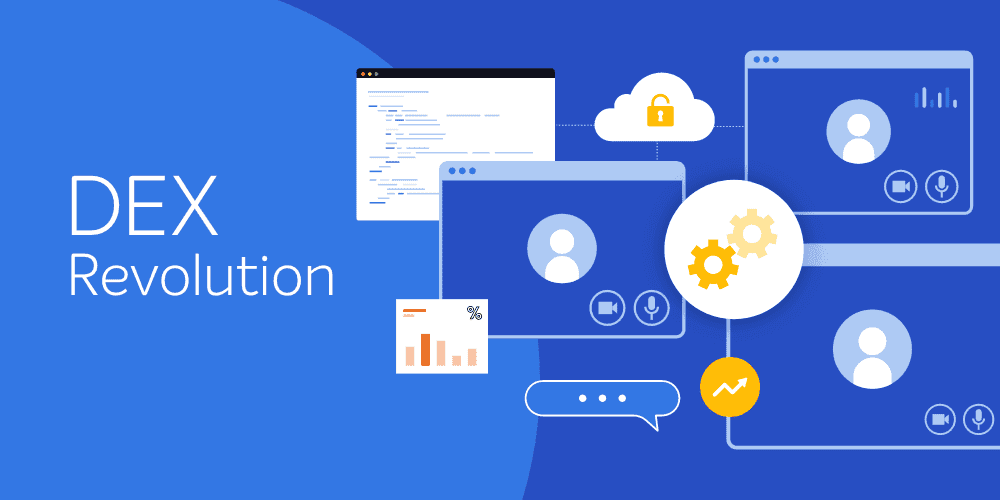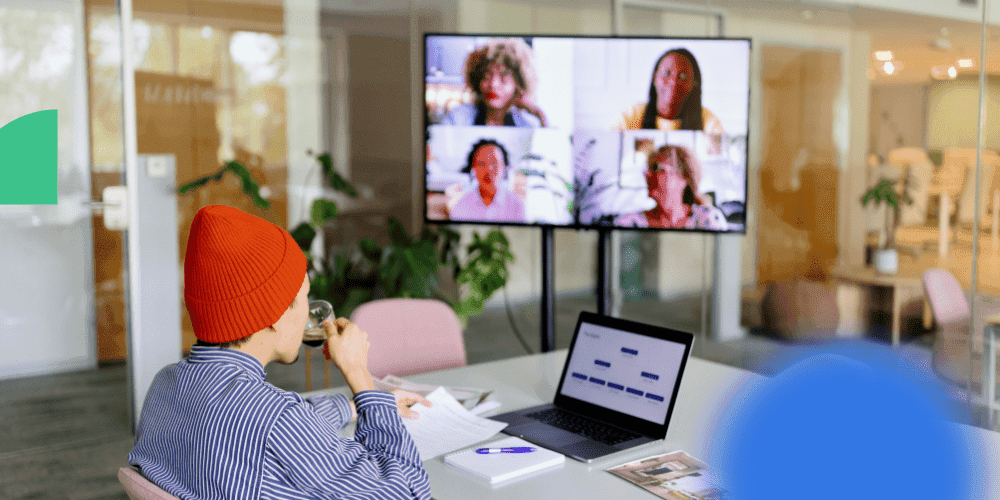In his opening keynote at the Work From Anywhere: Hybrid Working Summit, J. P. Gownder of Forrester said that “combining technology and cultural change is key to driving hybrid work, and the two must mutually reinforce one another to transform your business” And the notion of flexible /hybrid working isn’t a new one. Interestingly, prior to the pandemic, approximately 30% of the U.S. based workforce was working from home at least some of the time. However, COVID has indeed accelerated the adoption of these working practices on a global scale; this 30% has more than doubled, and a new perception of employee productivity and engagement has emerged.
Several things have now become a certainty in this newly transformed workplace:
- The myths regarding what drives employees’ to be productive have been irreversibly shattered. It has never been solely about the physical workplace or rigid engagement/work model patterns that are being enforced top-down. Instead we see an emphasis on employers providing where, when, and how work choices for their employees.
- Technologies are a strong ally and a critical enabler, helping both executives and workers to rapidly pivot in a changing world. With the appropriate tools, organizations can – and will – empower their employees to perform their best work, irrespective of where they are.
- Pre and during pandemic workplace strategies need to be revisited and continuously adapted to address an increasingly hybrid worker profile. What worked before and during the pandemic, will no longer work in a post-COVID world.
- There is no going back to the previously established models of work and organizations need to strongly consider the potential negative business impact of not understanding and addressing this shift – hybrid work is here to stay!
And, with hybrid work here to stay – along with the convergence of an employee-centric shift and the newly established realities of the workplace – combining culture and technology to create a workplace that both drives hybrid work and supports your employees is key; one that fosters innovation, attracts and retains talent, and that naturally drives engagement and collaboration.
Employee-Centric Workplace Strategy
It is important to remain employee-centric in your workplace strategy as you begin to outline what hybrid working looks like for your organization. Enterprises must look at technology and culture (accompanied by human-resources driven approaches) in tandem and apply these to three key areas: the newly redefined physical workplace, the evolving digital workplace, and now employee/worker wellbeing too.
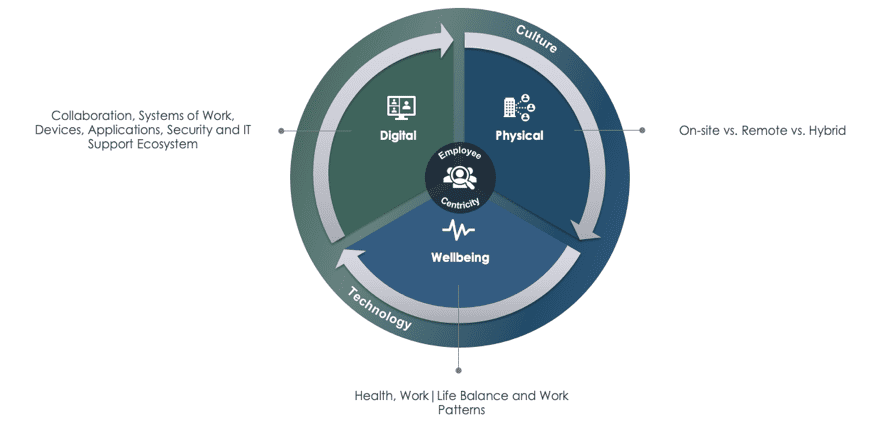
Figure 1: The Employee Centric Workplace Strategy Focus Areas
Any enterprise that understands the correlation between talent retention, talent attraction, productivity, engagement, and business innovation/growth, should start making decisive steps across the areas listed below to enable a resilient workplace.
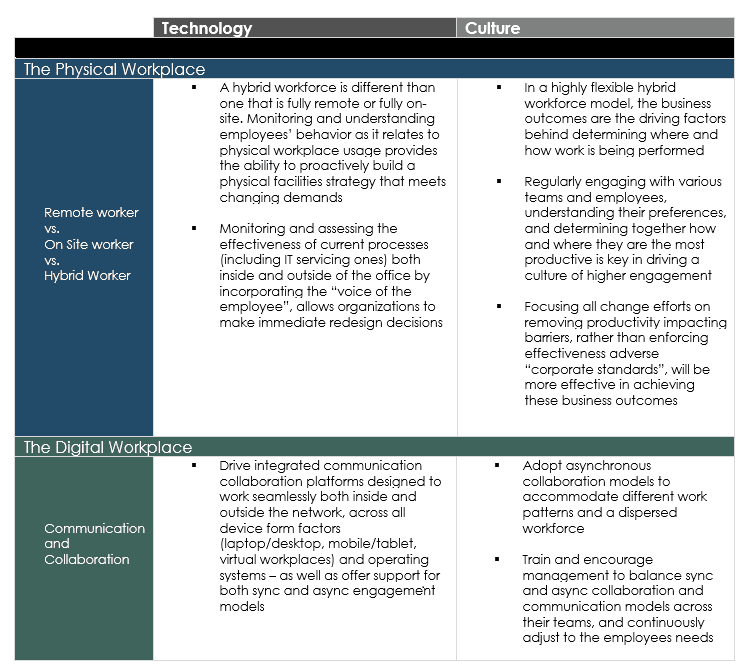
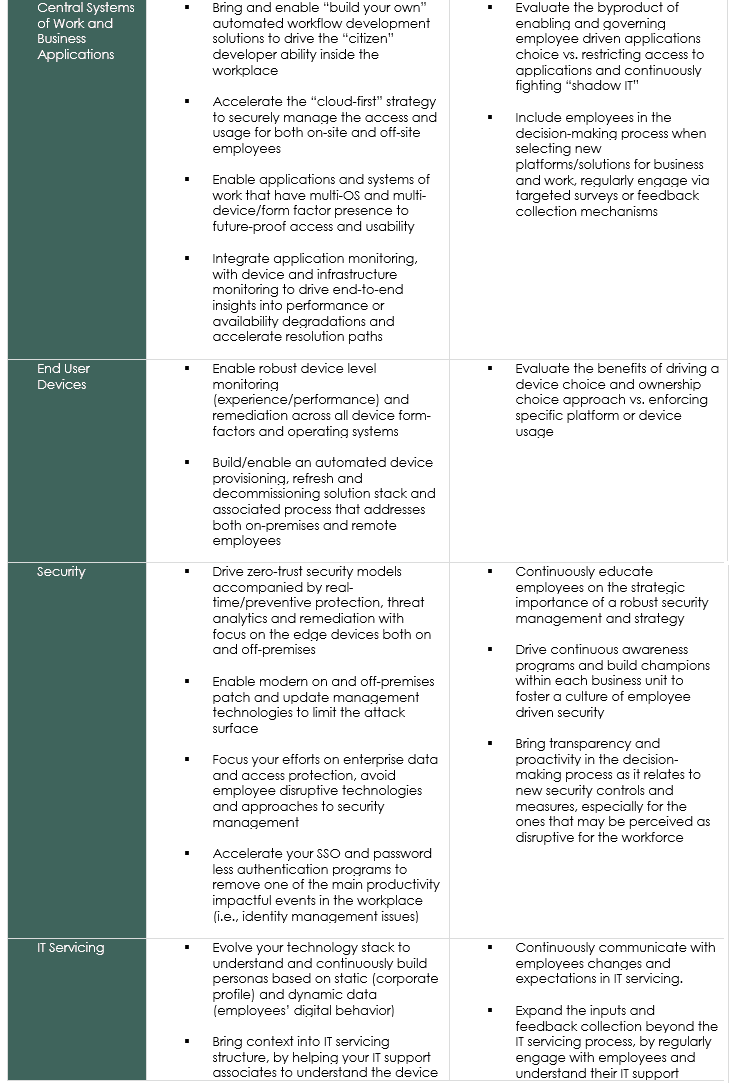
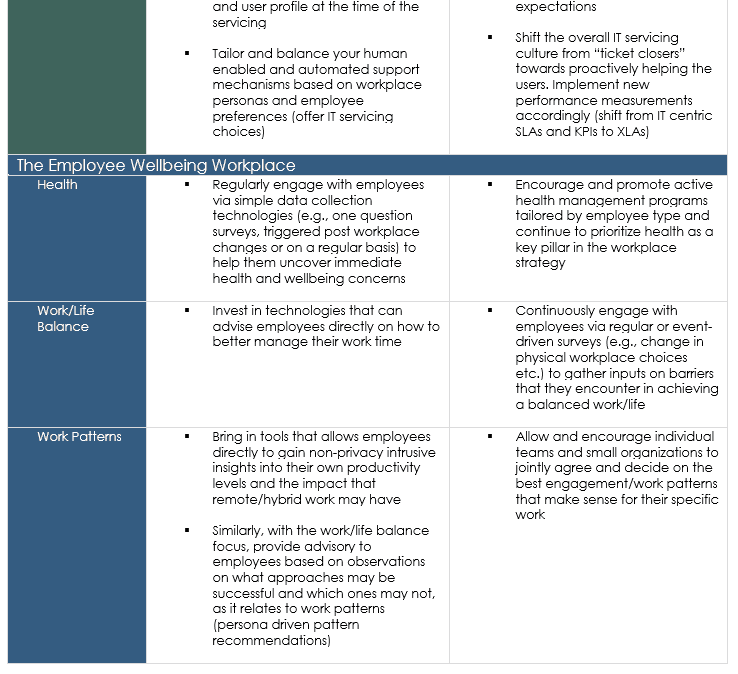
All businesses have learned a lot in the past 12 months and, one thing that they will focus a lot more in the immediate future, will be their agility and ability to rapidly pivot in reaction to market demands or other socio-economic factors. This is the reason why we are already in an employee and an experience-centric economy, where any enterprise that aspires to be successful, will need more and more to understand the users’ needs and continuously adjust all things workplace-related around them.
Seizing and capitalizing on the unexpected opportunity that “forced remote working” has created, in order accelerate the shift towards the hybrid workplace, is what I believe will be difference maker in the market between various enterprises.
Keen to find out more about how technology and culture can be utilized to drive the hybrid workplace? Why not check out our Work From Anywhere conference replay site and hear from all our digital workplace experts on-demand!









